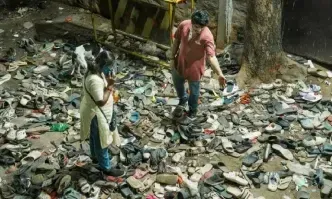What began as a night of unmatched celebration for Royal Challengers Bengaluru and their devoted fanbase quickly turned into a city-wide tragedy that has left hearts heavy and questions unanswered.
Just hours after RCB lifted their first-ever IPL title on June 3, millions of ecstatic fans flooded the streets of Bengaluru to celebrate a moment they had waited nearly two decades for. The iconic M. Chinnaswamy Stadium and surrounding areas became the epicentre of jubilant chaos — fireworks lit the sky, chants of "Ee Sala Cup Namdu" echoed for miles, and the city pulsed with pride.
But amid the unrestrained joy, crowd control slipped fatally out of hand.
According to officials, the overwhelming turnout exceeded anticipated numbers by tens of thousands. In the early hours of June 4, during the team’s homecoming parade, a stampede occurred near Cubbon Park Metro Junction, just adjacent to the stadium perimeter. Eleven lives were tragically lost, and dozens more were injured in the crush as barriers gave way and panic surged through the densely packed crowd.

/*City Mourns as the Nation Watches*/
The city, once glowing red with celebration, fell silent. What was supposed to be a night of dreams fulfilled became a solemn day of mourning. Memorials sprang up overnight — flowers, jerseys, and handwritten notes placed outside the stadium gates, as grief-stricken fans gathered in candlelight vigils to honour those lost.
/*Virat Kohli*/, visibly shaken, released a heartfelt statement on social media:
"This victory belongs to every RCB fan — and today, we dedicate it to those we lost. We never imagined our moment of joy would cost precious lives. My heart aches for the families. We stand with you."
/*RCB management*/ has pledged full support to the affected families, and the /*Karnataka State Government*/ has initiated an inquiry into the lapses in planning and crowd control. Questions are being raised about why tighter safety protocols were not enforced despite advance warnings about the scale of expected turnout.
